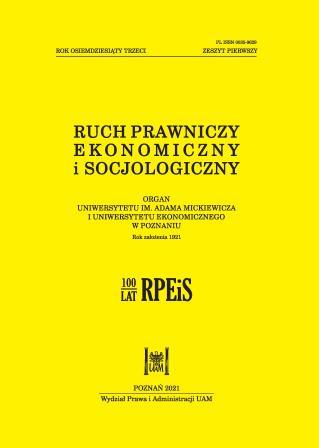Implantacja zarodków utworzonych z komórek rozrodczych samotnych kobiet – propozycje przepisów przejściowych
Implantation of embryos created using single woman’s reproductive cells: proposals of transitional provisions
Author(s): Rafał ŁukasiewiczSubject(s): Law, Constitution, Jurisprudence, Constitutional Law, Civil Law, Court case, Comparative Law
Published by: Uniwersytet Adama Mickiewicza
Keywords: medically assisted reproduction; infertility treatment; single mothers; third-party reproduction;in vitro;
Summary/Abstract: According to the Polish Infertility Treatment Act, single women do not have access to medically assisted reproduction (MAR). Nevertheless, many single women had taken part in third-party reproduction before the Infertility Treatment Act came into effect. Under the current legal regulations, they are not entitled to have their embryos, which were created from their oocytes and anonymous donors’ semen, implanted. Given that Polish Law prohibits destroying embryos, the embryos will be stored for 20 years and after this time they will be donated to other couples without the single woman’s consent or knowledge. This means that a donor-conceived child will be brought up by non-genetic parents instead of their genetic mother, who wanted to give birth to a child and be responsible for him or her. The aim of this article is to analyse the risks associated with the above problem. The Polish Constitutional Tribunal’s proposal of 18 April 2018 (S 2/18) recommends the consent of the family court to embryo implantation in the cases of single women who took part in third party-reproduction using MAR before it became illegal. In this article I present some weaknesses of this solution and present another proposal which gives a chance to protect the involved parties’ interests, and which is consistent with the current legal regulations.
Journal: Ruch Prawniczy, Ekonomiczny i Socjologiczny
- Issue Year: 83/2021
- Issue No: 1
- Page Range: 73-84
- Page Count: 12
- Language: Polish

